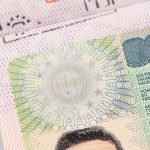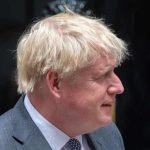[ad_1]
The Chinese billionaire Huang Xiangmo has been given 21 days to declare all of his assets around the world to the federal court, as the Australian Taxation Office pursues him over an alleged $140m tax bill.
The reclusive Huang, exiled from Australia over security agencies’ concerns about foreign political interference, is fighting an ATO demand for more than $140m in unpaid taxes, interest and penalties.
The ATO is seeking to have Huang declared bankrupt in Australia, applying for a summary judgment which could be the basis for pursuing his assets over the bill.
In the federal court on Monday, Justice Jayne Jagot continued an order freezing all of Huang’s assets, including those outside of Australia, and ordered that he disclose his assets worldwide within 21 days.
Huang’s barrister, Nathan Li, foreshadowed a likely appeal against the disclosure of assets outside of Australia.
The ATO’s application before the court says Huang owes $140,925,953.98 in unpaid taxes from 2013 to 2015.
“The ATO formed the opinion during the audit into Mr Huang’s taxation affairs … that Mr Huang had ‘grossly understated’ his income and made false or misleading statements to the Commissioner in respect of the income tax returns with ‘recklessness’,” the ATO said in its submissions to the court.
Ahead of a judgment in the case, argument before the federal court has centred on the limits of the freezing order, and whether the court should – or practicably could – order a freeze on assets held outside of Australia.
Lawyers for Huang had sought to carve out Huang’s overseas assets from the freezing order, as well a $12.8m Mosman mansion held in the name of his wife, Jiefang Huang. The mansion is the largest asset remaining in Australia. Huang’s lawyers argue it belongs to his wife, and should be exempted from the freezing order.
The ATO points to bank records that show Huang withdrew more than $5m from a bank account he controlled on the day the property settled, arguing it was used to help purchase the property.
Jiefang Huang’s affidavit to the court, in which she gives her occupation as “housewife” and her income as $100,000 a year, says the funds were a gift from her husband.
Noel Hutley SC, for Huang, said last week that Huang’s international assets should be excluded from any freezing order, arguing there was not the “remotest possibility” an Australian order could be enforced overseas.
Hutley said freezing orders should not be issued where there was no prospect of them being enforced. “These orders are orders of the most intrusive variety.”
But Anthony McInerney SC, for the tax office, said that in regard to assets held in China or Hong Kong, enforcement, while unlikely, was not “not impossible”.
In issuing the original freezing order against Huang in September, Justice Anna Katzmann said Huang had pulled nearly $50m out of Australia since his permanent residency was cancelled by the government last December on advice from Asio over concerns about foreign political interference.
“Although [Huang] transferred money overseas before he was aware that he was under investigation by the ATO, since the audit began the amount of money transferred offshore increased dramatically,” Katzmann said.
Katzmann said that although there was no direct evidence that Huang “intended to divest himself of his Australian assets or diminish them in value, the results of the audit indicate an intention to avoid paying tax by grossly understating income”.
She said the flow of money back and forth between China and Australia showed Huang was “likely to be a person of substantial wealth” but he did not appear to have enough assets in Australia to pay the posited ATO bill.
“These circumstances demonstrate that Mr Huang has both a motive and the means to dissipate his Australian assets.”
Huang, a Chinese billionaire property developer who arrived in Australia in 2011, assiduously cultivated influence with both sides of Australian politics during his time in the country, donating $2.7m to both the Liberal and Labor parties and appearing in photographs with prime ministers and ministers.
The Labor senator Sam Dastyari was forced to resign from parliament after revelations he had asked Huang for money to pay personal legal bills and warned Huang he was under surveillance.
Huang’s permanent residency visa was summarily cancelled – and his application for Australian citizenship withdrawn – by the Morrison government last December on character grounds, and after Asio warned political parties against accepting any more money from Huang.
Of particular concern was his long-running involvement with the Australian Council for the Promotion of the Peaceful Reunification of China, which has been accused of being a front for Chinese government efforts to expand its global influence.
Despite his exile from Australia, Huang has re-emerged as a key figure in the Independent Commission Against Corruption’s current investigation into Labor party donations last month.
Icac has heard allegations that Huang gave the New South Wales branch of the ALP $100,000 – personally delivered in cash in an Aldi shopping bag – in breach of electoral regulations which prohibit property developers donating.
From Hong Kong, Huang has denied being the source of the money but has declined to give evidence to Icac.
[ad_2]
Source link Google News









